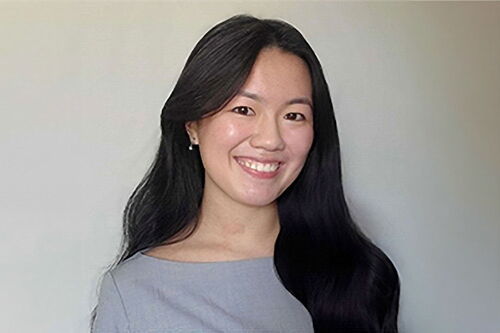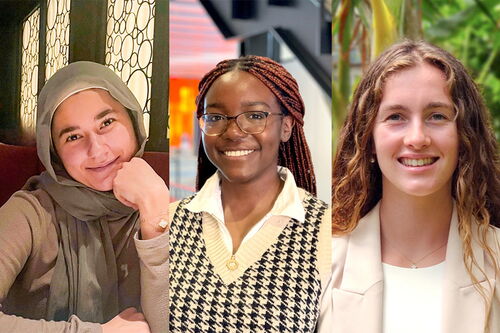Social and Behavioral Science Research Initiative launches at U of I

There’s more than one way to approach questions of social science. To gauge the stress that mathematics causes the typical middle schooler, for example, a researcher could ask about recent math tests or conduct interviews with parents. On the other hand, an engineer could create a sensing patch for students to wear in order to identify heart rate differences before, during, and after an exam.
Alternately, social science research can incorporate a blend of approaches, and the U of I has always been a breeding ground for that type of cross-disciplinary interaction to occur. The newly founded Social and Behavioral Science Research Initiative aims to build on that foundation by making possible even more collaboration among the many academic units at the U of I that house social and behavioral scientists.
Brent Roberts, professor of psychology and chair of SBSRI, said that the knowledge that comes at the intersection of education, developmental science, and engineering is just one of countless possibilities at U of I. The initiative took root after a campus analysis revealed that social and behavioral sciences were one of the strongest areas for research productivity—and potential growth—at the university.
Roberts hopes that the SBSRI (an initiative from the Office of the Vice Chancellor for Research) will make it easier for experts to share information and collaborate on projects. Illinois is a place defined by its openness, he said, but more nudging in that direction can only make it better.
According to Roberts, “The social sciences are critical to many of the dilemmas that society confronts today, and those issues transcend our typical structures within higher education. To be able to address those issues, it’s really important and critical to have some kind of infrastructure to be able to increase communication across what are typically lines that don't get crossed.”
There are many examples of exemplary interdisciplinary research at U of I, but with so many faculty members across so many different departments, it can be a challenge for the right people to get in touch for potential projects. One of the main goals of SBSRI is to bridge that gap by identifying the cross-disciplinary research that behavioral and social scientists are interested in conducting.
For example, SBSRI helped Daniel Briley, a professor of psychology, to coordinate a group of researchers to look at the intersection of behavioral genetics and philosophy. Their research looks to identify how dynamic the genetic system is in response to social experiences, by adding philosophical and mathematical perspectives to the traditional psychological lens.
Briley's case is just one early instance of the type of melting pot of ideas that Roberts believes SBSRI can help grow.
“The primary goal at this point is to identify these nodes of potential collaboration between different groups and then doing what we can to facilitate,” Roberts said. “We have a lot of different kinds of groups that could be fostered.”
SBSRI is in its early stages of development, so the main focus has been identifying the wants and needs of U of I’s behavioral and social scientists and then looking into ways of gaining funding for projects. The initiative is still looking to hire staff, and it is in the process of creating and submitting proposals for potential funding.
Roberts said they have plans to facilitate some climate-building events, such as a methodological seminar series to prove training to faculty and graduate students who are interested in particular cross-departmental topics. Another goal of SBSRI is to educate new faculty on the methods and language required to acquire research grants.
“One of the reasons I've always enjoyed this university is because that type of interdisciplinary action across different units is really part of the fabric of the university,” Roberts said. “If you're an interested faculty member and you're curious about doing research with somebody from the life sciences, you walk across campus after an email or two, you have a coffee, and all of a sudden, you have a project going.”








